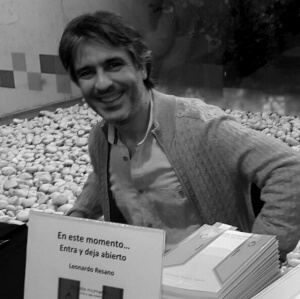What's the Difference Between Love and Need?


Written and verified by the social worker Leonardo Resano
When you confront certain situations in your life, you have to ask yourself whether you really know how to distinguish love from a need. Is it love or is it need? Do you really know what love is and why is it different from a need?
Talking about “love”, in any of its expressions, is very complicated due to the excessive use that has been given to this word in areas that are, in reality, very different.
Since it’s clearly far more than just a word, it may be a good idea to emphasize what love isn’t instead of looking for a possible definition.
Love is NOT…
- The word “love” (if you define it, then it isn’t love).
- Possession (what you possess possesses you and can’t be locked up or trapped).
- Thinking (don’t think that you love, but rather practice loving).
- Self-interest (where there are ulterior motives, there is no love; love isn’t a commodity, love simply is).
- Necessity (love doesn’t exist to cover up your ego gaps).
- Temporary (it isn’t in you, you are in it, always in the present).

A couple ISN’T…
- About being a couple, but rather about being free.
- Making promises to each other, but rather both taking the helm.
- Signing anything, but rather both of you affirming your individual freedom within the relationship.
In addition:
- It doesn’t require demonstrations, but rather communication.
- You can’t compare the “masks” and the image you have of each other.
- It’s not “falling in love”, that’s just neurochemistry that soon fades away.
As for couples, and the many manifestations of love that there are, falling in love is the most confusing thing. This is because this transitory state involves an alteration of neurotransmitters (dopamine and noradrenaline increase and serotonin decreases) with a very similar effect to drug addiction. Because of this, it’s advisable to let this state of falling in love pass in order to make clear, rational decisions.
According to psychologist John Bradshaw, in order to have a long-lasting relationship, you have to go through the falling in love or transition states and arrive at a state of “companionship”.
There’s a much-used study of how couples remember things in this regard, and how their thoughts change. Holmberg and Holmes (1994) interviewed 400 married couples who said they were doing very well and that they were in love.
Two years later, they were interviewed again. The couples who had separated or who were in a worse situation said that the relationship had gone badly from the beginning. This allows us to see how you can easily build memories that are outside of reality and that justify your decisions.
What a relationship should be
- Being able to express yourself in every way.
- Total freedom (otherwise, it isn’t a relationship).
- Playing without rules because if it’s love then there aren’t any rules.
- Imagination, surprise, and unconditional support.
- Respect for oneself and for your partner.
- Driving through the “potholes” of life and checking each other’s “wheels” as you go.
- Not commitment, but liberation.
As the years go by, freedom seems to disappear and judgments, pride, and egos increase. To all this, we can add the problem of technology, where superficial communication is often preferred to human contact.
The obsession with giving gifts and obtaining recognition is increasing, as well as decadence. In addition to this, people are becoming more and more infatuated with physical exhibitionism on social and mobile networks. As a result, many people are now needing treatment and therapy for this problem.
Institutionalization as an obstacle to love
Institutionalization
Love shouldn’t be shut inside temples, sects, religions, fashions, rites, or philosophies. Do you really think you can label or classify freedom? That’s why love has no sanctuaries because you can find it where you don’t look for it and it appears when you remove obstacles.
In the same way that you have to open the curtains to let in the light, you also need to realize that you’re living in darkness in order to seek freedom and love.
Results
A nightingale doesn’t sing so that people will applaud it – its naturalness gives beauty to its melodies. Sometimes, you can think that love is a result of your hard work. However, we’re talking here about you removing things – the obstacles – than about the effort that you think you have to put in.
This also happens with hobbies and attitudes. We aren’t taught to love what we do, but rather to love the results and to seek recognition. Instead of this, you should learn to seek the beauty of natural passions that are born from the harmony of your surroundings and that don’t have specific goals that you need to obtain.
Conditioning
You should break with, and question, every condition that traps and hides the capacity to love that you have inside you. Do you just do the things that other people expect of you or do you the things that you actually want to do for yourself?
Some people are so obsessed with identifying with a flag, a symbol, or an ideology, that they love them more than people. They feel they have to identify with these things in order to feel special.
However, deficiencies and emptiness arise when one is afraid to love. People choose these things because true love sweeps away everything you thought was safe.
Attachment
Confusing love with need is a very common attitude. Many teenagers start a relationship because their friends already have a boyfriend or girlfriend. They think that it’s better to have a partner than to have to deal with loneliness, fear, or avoidance, among other things. This shows us how attachment can make us mentally dependent on someone else.
As love is freedom, attachment is an obstacle to love and you have to know how to deal with it. Sharing freedom makes us strong, but dependence on our partner distances us from true love.

Your ego makes love disappear
In short, love manifests when your ego, along with its constant need for attention, fades into the background.
Many trains pass through your life. However, not all these trains are beneficial to you. Your fellow “passengers” will often reproach you for your ideas. Take the train that’s best for you and remember that you first have to get off the one you’re traveling on and change your direction in life.
When you confront certain situations in your life, you have to ask yourself whether you really know how to distinguish love from a need. Is it love or is it need? Do you really know what love is and why is it different from a need?
Talking about “love”, in any of its expressions, is very complicated due to the excessive use that has been given to this word in areas that are, in reality, very different.
Since it’s clearly far more than just a word, it may be a good idea to emphasize what love isn’t instead of looking for a possible definition.
Love is NOT…
- The word “love” (if you define it, then it isn’t love).
- Possession (what you possess possesses you and can’t be locked up or trapped).
- Thinking (don’t think that you love, but rather practice loving).
- Self-interest (where there are ulterior motives, there is no love; love isn’t a commodity, love simply is).
- Necessity (love doesn’t exist to cover up your ego gaps).
- Temporary (it isn’t in you, you are in it, always in the present).

A couple ISN’T…
- About being a couple, but rather about being free.
- Making promises to each other, but rather both taking the helm.
- Signing anything, but rather both of you affirming your individual freedom within the relationship.
In addition:
- It doesn’t require demonstrations, but rather communication.
- You can’t compare the “masks” and the image you have of each other.
- It’s not “falling in love”, that’s just neurochemistry that soon fades away.
As for couples, and the many manifestations of love that there are, falling in love is the most confusing thing. This is because this transitory state involves an alteration of neurotransmitters (dopamine and noradrenaline increase and serotonin decreases) with a very similar effect to drug addiction. Because of this, it’s advisable to let this state of falling in love pass in order to make clear, rational decisions.
According to psychologist John Bradshaw, in order to have a long-lasting relationship, you have to go through the falling in love or transition states and arrive at a state of “companionship”.
There’s a much-used study of how couples remember things in this regard, and how their thoughts change. Holmberg and Holmes (1994) interviewed 400 married couples who said they were doing very well and that they were in love.
Two years later, they were interviewed again. The couples who had separated or who were in a worse situation said that the relationship had gone badly from the beginning. This allows us to see how you can easily build memories that are outside of reality and that justify your decisions.
What a relationship should be
- Being able to express yourself in every way.
- Total freedom (otherwise, it isn’t a relationship).
- Playing without rules because if it’s love then there aren’t any rules.
- Imagination, surprise, and unconditional support.
- Respect for oneself and for your partner.
- Driving through the “potholes” of life and checking each other’s “wheels” as you go.
- Not commitment, but liberation.
As the years go by, freedom seems to disappear and judgments, pride, and egos increase. To all this, we can add the problem of technology, where superficial communication is often preferred to human contact.
The obsession with giving gifts and obtaining recognition is increasing, as well as decadence. In addition to this, people are becoming more and more infatuated with physical exhibitionism on social and mobile networks. As a result, many people are now needing treatment and therapy for this problem.
Institutionalization as an obstacle to love
Institutionalization
Love shouldn’t be shut inside temples, sects, religions, fashions, rites, or philosophies. Do you really think you can label or classify freedom? That’s why love has no sanctuaries because you can find it where you don’t look for it and it appears when you remove obstacles.
In the same way that you have to open the curtains to let in the light, you also need to realize that you’re living in darkness in order to seek freedom and love.
Results
A nightingale doesn’t sing so that people will applaud it – its naturalness gives beauty to its melodies. Sometimes, you can think that love is a result of your hard work. However, we’re talking here about you removing things – the obstacles – than about the effort that you think you have to put in.
This also happens with hobbies and attitudes. We aren’t taught to love what we do, but rather to love the results and to seek recognition. Instead of this, you should learn to seek the beauty of natural passions that are born from the harmony of your surroundings and that don’t have specific goals that you need to obtain.
Conditioning
You should break with, and question, every condition that traps and hides the capacity to love that you have inside you. Do you just do the things that other people expect of you or do you the things that you actually want to do for yourself?
Some people are so obsessed with identifying with a flag, a symbol, or an ideology, that they love them more than people. They feel they have to identify with these things in order to feel special.
However, deficiencies and emptiness arise when one is afraid to love. People choose these things because true love sweeps away everything you thought was safe.
Attachment
Confusing love with need is a very common attitude. Many teenagers start a relationship because their friends already have a boyfriend or girlfriend. They think that it’s better to have a partner than to have to deal with loneliness, fear, or avoidance, among other things. This shows us how attachment can make us mentally dependent on someone else.
As love is freedom, attachment is an obstacle to love and you have to know how to deal with it. Sharing freedom makes us strong, but dependence on our partner distances us from true love.

Your ego makes love disappear
In short, love manifests when your ego, along with its constant need for attention, fades into the background.
Many trains pass through your life. However, not all these trains are beneficial to you. Your fellow “passengers” will often reproach you for your ideas. Take the train that’s best for you and remember that you first have to get off the one you’re traveling on and change your direction in life.
All cited sources were thoroughly reviewed by our team to ensure their quality, reliability, currency, and validity. The bibliography of this article was considered reliable and of academic or scientific accuracy.
- Willi J. (2002) La pareja humana, relación y conflicto. Ediciones Morata.
- Riso, W. (2008) Amar o depender. Barcelona. Editorial Planeta.
- Fromm, E (1997) El arte de amar. Barcelona. Editorial Paidos Ibérica.
This text is provided for informational purposes only and does not replace consultation with a professional. If in doubt, consult your specialist.







